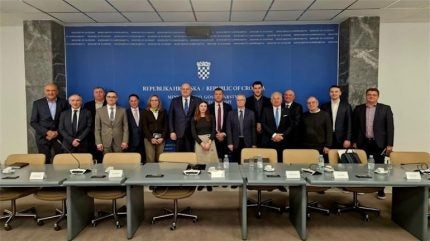
The Croatian Ministry of Economy has established a Nuclear Energy Working Group, comprising representatives of the Ministry, the scientific community, state institutions and nuclear experts from the energy sector. Its main tasks include developing a legislative framework for nuclear energy as one of the low-carbon options; preparing the ground for the establishment of the Nuclear Energy Institute or Agency as an independent regulatory body; and participating in the development and analysis of energy development scenarios. It will also investigate possible sites for the development of nuclear capacity, either conventional NPPs or small modular reactors (SMRs). The working group will also analyse the financial and economic aspects of SMR technology compared with conventional nuclear plants.
The Ministry of Economy has also launched an initiative to set up nuclear energy study programmes to renew expertise and train specialists. “Croatia must recognise global trends on time and make decisions that ensure long-term energy stability and sustainability,” Minister of Economy, Ante Šušnjar said. “Our nuclear programme is focused on reducing CO₂ emissions and ensuring the long-term energy independence of the Republic of Croatia. In this context, the Working Group will play an important role in assessing technological and regulatory aspects and in developing strategic recommendations for future decisions on the country’s energy development.”
Croatia currently has one NPP, Krško, co-owned with Slovenia for over four decades, which accounts for some 16% of total electricity consumption.






